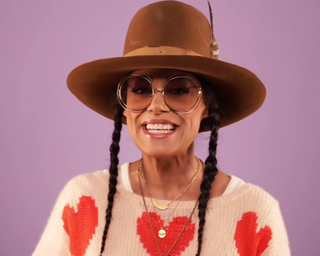A Quote by James Ishmael Ford
In the spiritual life nowhere do our ideals meet the actual more truly than in how we relate to each other, in how we make, sustain and are friends.
Related Quotes
Not everyone knows how to be alone with others, how to share solitude. We have to help each other to understand how to be in our solitude, so that we can relate to each other without grabbing on to each other. We can be interdependent but not dependent. Loneliness is rejected despondency. Solitude is shared interdependence.
Now all the myths that you have heard and that resonate with you, those are the elements from round about that you are building into a form in your life. The thing worth considering is how they relate to each other in your context, not how they relate to something out there-how they were relevant on the North American prairies or in the Asian jungles hundreds of years agon, but how they are relevant now-unless by contemplating their former meaning you can begin to amplify your own understanding of the role they play in your life.
Each day is an adventure in discovering the meaning of life. It is each little thing that you do that day - whether it be spending time with your friends, running in a cross-country meet or just simply staring at the crashing ocean- that holds the key to discovering the meaning of life. I would rather be out enjoying these things than pondering them. We may never really discover the meaning of life, but the knowledge we gain in our quest to discover it is truly more valuable.
If you think about work, it's just this endlessly fascinating subject. We spend at least half of our waking hours working. So it becomes this incredible window into a whole variety of things: who we are human beings, how the economy works, how people relate to each other, how stuff is made, how the world spins on its axis.
With respect to our friends in the [Iraq] region, each has its own system, each will have to make its own judgment as to whether it will change, how fast it will change, and we hope that we can help influence them as to how change comes about and what change might be better for them than other forms of change.
When we haven't the time to listen to each other's stories we seek out experts to tell us how to live. The less time we spend together at the kitchen table, the more how-to books appear in the stores and on our bookshelves. But reading such books is a very different thing than listening to someone' s lived experience. Because we have stopped listening to each other we may even have forgotten how to listen, stopped learning how to recognize meaning and fill ourselves from the ordinary events of our lives. We have become solitary; readers and watchers rather than sharers and participants.






























